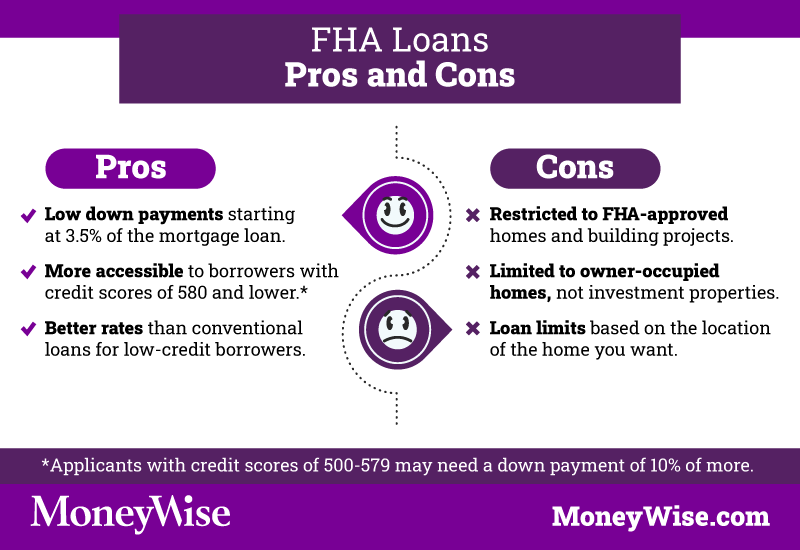FHA Home Loans: Your Overview to Reduced Deposit Home Loan Choices
FHA Home Loans: Your Overview to Reduced Deposit Home Loan Choices
Blog Article
The Ultimate Resource on Home Loans: A Thorough Take A Look At Different Financing Programs and Their Advantages for Debtors
Browsing the landscape of home fundings can be a daunting job, specifically with the myriad of choices offered to prospective debtors. Each funding program-- be it traditional, FHA, VA, or USDA-- supplies unique advantages that cater to varying financial situations and homeownership goals.
Recognizing Traditional Fundings
Conventional finances stand for a considerable portion of the home funding market, appealing to a variety of borrowers as a result of their structured terms and competitive rate of interest rates. These finances are typically not guaranteed or assured by the federal government, differentiating them from government-backed financings such as FHA or VA car loans. Instead, standard finances are offered by personal lenders, which permits better adaptability in terms and conditions.
Usually, standard car loans come in two types: adapting and non-conforming. Adapting car loans comply with the standards set by Fannie Mae and Freddie Mac, consisting of limitations on lending amounts, customer credit rating, and debt-to-income proportions. Non-conforming financings, on the other hand, do not meet these standards and may deal with consumers with special economic circumstances.
Debtors commonly find that standard financings supply appealing options for deposits, with some requiring as little as 3% down. In addition, those with strong debt accounts might benefit from reduced rate of interest contrasted to other alternatives. Generally, standard fundings are a practical option for numerous homebuyers, providing a mix of cost and availability in the affordable real estate market.
Discovering FHA Finance Perks
A considerable variety of homebuyers turn to FHA loans due to their attractive benefits, specifically for those that might deal with obstacles securing standard financing. The Federal Housing Management (FHA) insures these finances, making them available for debtors with reduced credit report and smaller sized down settlements. Generally, FHA financings require a down repayment of simply 3.5% for those with credit rating of 580 or higher, dramatically decreasing the in advance expense of buying a home.
Furthermore, FHA car loans have versatile credentials standards that accommodate a larger series of economic scenarios. This consists of allowances for greater debt-to-income proportions, allowing debtors with existing financial obligations to obtain financing (FHA home loans). FHA financings additionally permit the usage of gift funds from household members or companies to cover down payment and closing expenses, easing the financial concern on customers.

Advantages of VA Loans
VA lendings provide numerous benefits for eligible experts, active-duty service members, and specific members of the National Guard and Books. Among one of the most considerable benefits is the absence of a deposit demand, permitting debtors to fund 100% of the home's worth. This attribute makes homeownership more obtainable for those who have offered in the military.
Furthermore, VA car loans do not call for private home loan insurance (PMI), which can save debtors significant regular monthly expenses compared to conventional car loans. The rates of interest on VA finances are usually less than those of various other funding kinds, further enhancing price. Moreover, VA car loans come with adaptable debt demands, making them an attractive alternative for individuals that may have less-than-perfect credit Going Here rating.
One more trick advantage is the choice for experts to obtain positive funding terms, including the possibility of refinancing with the Streamline Refinance choice, which can decrease regular monthly repayments. Finally, VA loans use an unique function of assumability, permitting future buyers to take control of the loan under the exact same terms, which can be a marketing point when reselling the residential property. Overall, VA fundings supply crucial advantages that cater specifically to the requirements of armed forces workers and their family members
Insights Into USDA Finances
Exploring the benefits of USDA lendings reveals a practical financing alternative for property buyers in rural and suv locations. The United States Division of Agriculture (USDA) provides these lendings to promote homeownership, especially targeting reduced to moderate-income family members. Among one of the most significant benefits is the zero down payment need, making it simpler for eligible customers to buy a home without the concern of a considerable preliminary investment.
USDA finances additionally feature competitive rates of interest, which usually cause lower monthly repayments compared to conventional financing. In addition, these finances do not need personal home mortgage insurance policy (PMI), additional decreasing the overall cost of homeownership. Consumers can fund not only the acquisition cost yet also shutting costs, making it an eye-catching option for those with minimal funds.
Qualification for USDA finances is established by income restrictions, which vary by area and house size, ensuring that support is routed to those who need it most. With flexible credit history needs, USDA fundings come to a more comprehensive variety of applicants, cultivating community development and stability in country and suburban locations. On the whole, USDA fundings stand for a vital device for promoting equity in real estate possibilities.
Comparing Funding Programs

Conventional lendings are often appealing as a result of their versatility and the opportunity of preventing home loan insurance with a greater deposit. In contrast, FHA finances supply chances for borrowers with reduced credit score scores and smaller sized deposits, making them easily accessible for new buyers. VA finances stand apart for veterans and active-duty solution participants, supplying beneficial terms such as no down repayment and affordable rates of interest.
USDA car loans especially satisfy rural homebuyers, promoting budget-friendly housing in much less inhabited locations with absolutely no deposit options. Each program has details eligibility requirements, consisting of income restrictions and residential or commercial property location limitations, which need to be thoroughly evaluated.
Eventually, performing a comprehensive comparison of loan programs involves evaluating passion prices, financing terms, pop over to these guys and closing expenses, together with individual economic circumstances. FHA home loans. This tactical technique will certainly encourage borrowers to make informed decisions that align with their long-lasting economic objectives
Conclusion
Finally, an understanding of different mortgage programs is essential for possible borrowers looking for to make Read Full Report educated choices. Each funding type, consisting of conventional, FHA, VA, and USDA, supplies unique benefits tailored to certain financial circumstances and demands. By assessing the special benefits of these choices, people can choose one of the most suitable finance that straightens with their homeownership goals, inevitably facilitating a much more obtainable path to achieving homeownership and monetary security.
These car loans are typically not guaranteed or guaranteed by the federal government, differentiating them from government-backed loans such as FHA or VA car loans. Adapting finances stick to the standards established by Fannie Mae and Freddie Mac, including limitations on loan amounts, customer credit rating scores, and debt-to-income ratios.Rate of interest prices on FHA financings tend to be competitive, providing borrowers with lower monthly payments compared to traditional finances.In addition, VA lendings do not require private mortgage insurance (PMI), which can save borrowers substantial month-to-month prices contrasted to conventional car loans. VA car loans use a special function of assumability, allowing future buyers to take over the financing under the very same terms, which can be a marketing factor when reselling the building.
Report this page